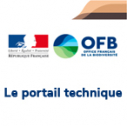COP 14 Ramsar: progress for wetlands
Several resolutions in favor of wetlands were adopted at the 14th Conference of the Contracting Parties (COP14) to the Ramsar Convention on wetlands.
Organized every three years, the Conference of the Contracting Parties to the Ramsar Convention brings together the 172 States to discuss and adopt resolutions for the protection of wetlands.
The 14th edition took place from 5 to 13 November 2022 between China and Switzerland: the opening ceremony and the high-level segment took place in Wuhan, while the negotiations were held in Geneva.
Overall, this COP14 was a success. Several difficult resolutions found a favorable outcome thanks to the efforts and compromises made by the parties.
Among the major successes for France, we must highlight the adoption of a resolution recognizing the environmental impacts on Ukrainian wetlands caused by the war or the maintenance and use of the concept of "nature-based solutions", recognized by the United Nations Environment Program (UNEP).
In addition, a new approach to the strategy of communication, capacity building, education, participation and awareness (CEPA) was adopted to increase the visibility of the Convention, which is little known by the public. The integration of youth in wetland protection has also been strengthened through the creation of a dedicated working group and the designation of national youth focal points in each country.
From a technical point of view, the COP reminded the States of the importance of monitoring the status of Ramsar sites. Indeed, many countries, including France, have fallen behind in updating data on these sites. For information, Europe is the region with the most listed sites (1125 sites), 52 of which are located in France. Similarly, the importance of considering waterbird populations was recalled as a criterion for the classification of a Ramsar site. Indeed, these bird populations are globally decreasing in number, and their protection requires the preservation of their habitat.
As a public institution in charge of protecting biodiversity, the OFB was present to provide its expertise. Thus, the negotiations of several resolutions had been placed under its responsibility on behalf of the French delegation, especially the resolution concerning the creation of new regional Ramsar initiatives and the development of the existing initiatives. For example, the MedWet initiative supports the effective protection of wetlands around the Mediterranean basin and is partly financed by the OFB.
Upstream, the establishment had also helped prepare the technical positions that France would defend during the negotiations.
The COP15 of the Ramsar Convention will take place in 2025, in Zimbabwe.




